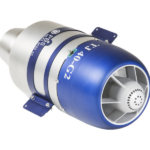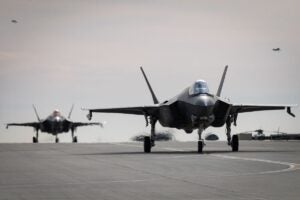The European Union (EU) asked the World Trade Organization (WTO) yesterday for permission to slap the United States with $12 billion in annual trade sanctions because the organization found this year that Boeing [BA] received improper U.S. government support. This call for U.S. penalties is the latest move in a trans-Atlantic trade dispute which also involves a U.S. challenge to support European countries gave airplane maker Airbus. This two-part trade battle was particularly heated in the halls of Congress when…
Recommended

Aalyria Posts $100M Series B Funding Round

Leonardo DRS Ends Strong Year With Robust Fourth Quarter

Turbojet Engine Manufacturer PBS Aerospace In Subcontract With Zone 5
Trending
Congress Updates
Wicker Wants Legislation On DoD’s Equity Investments In Minerals Supply Chain
Legislation regarding equity investments by the Defense Department in critical mineral supply chains is needed to strengthen the larger defense industrial base and demonstrate to the “free market” that the […]
“Not Sure How They Get To Where They Wanna Be,” Calvert Says of $1.5 Trillion Defense Topline Proposal
As the federal government enters a third week of tardiness in a fiscal 2027 budget release, a big question is how the Pentagon will be able to spend $500 billion […]
Path Uncertain For $1.5 Trillion FY ‘27 Defense Topline After Trump Casts Doubt On Second Reconciliation Bill
The path to achieve the White House’s call for a $1.5 trillion defense topline in 2027 appears murkier now after President Donald Trump has cast doubt on the prospects of […]
Senate Budget Dems Push For Defense Reconciliation Spending Details, Cite ‘Slush Fund’ Concerns
Democrats on the Senate Budget Committee have raised “significant concern” with the Pentagon’s move to classify reconciliation spending plans, urging the department to provide more public details on how the […]
Job Feed
-
Cleared R&D Manager
Inertial Systems, Onsite - Sandia National Laboratories - Albuquerque, NM -
Cleared Early Career Operations Information Management Professional
Special Programs, Onsite - Sandia National Laboratories - Livermore, CA -
Police Sergeant
Saddleback College - Mission Viejo - Saddleback College - Mission Viejo, CA -
Supervisory Power and Operations Planning Specialist / Meteorologist / Operations Research Analyst
USA Jobs - Portland, OR









